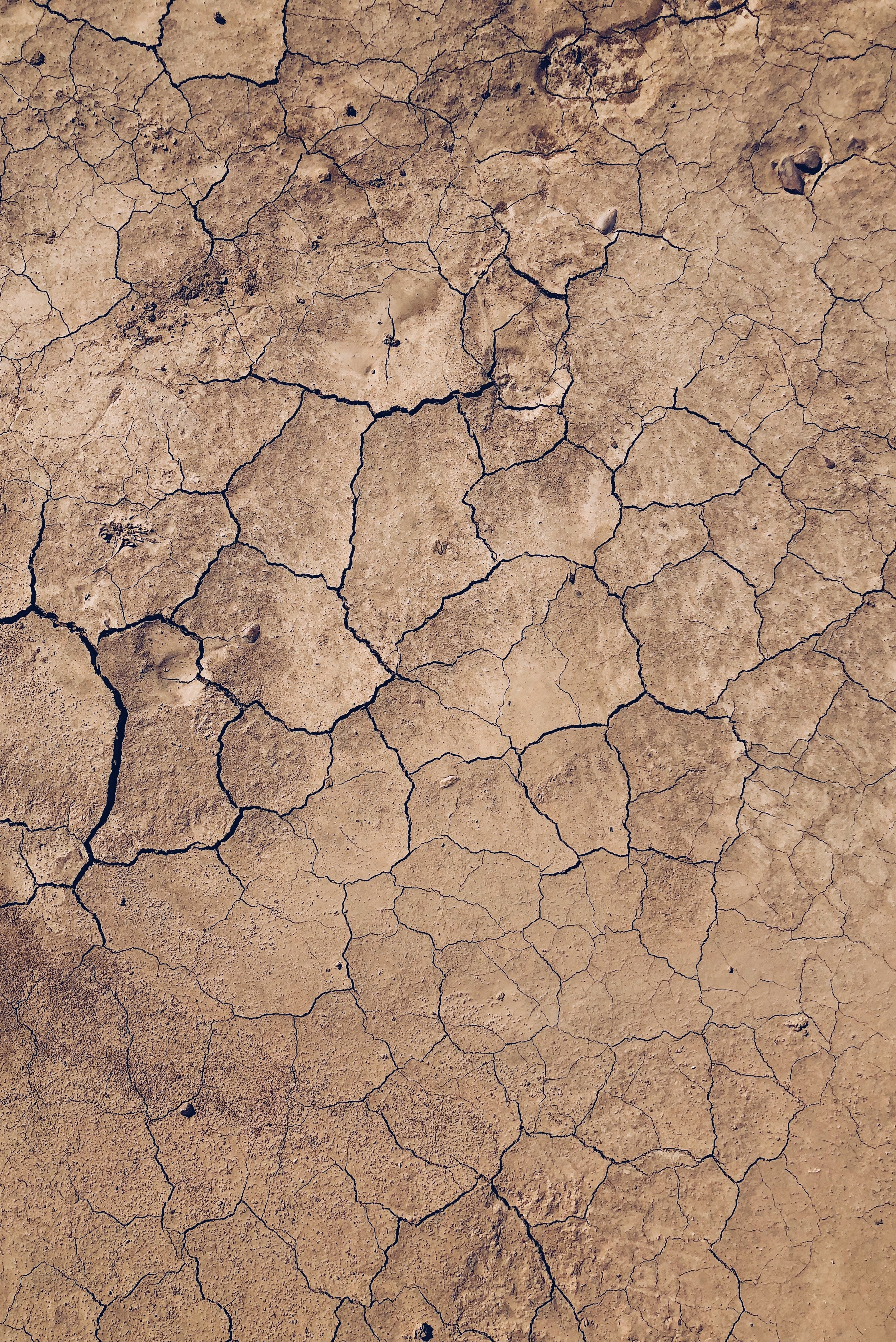
The Importance of Soil Health
Soil health is a crucial component of sustainable agriculture, yet it often goes unnoticed. Healthy soil is essential for producing high-quality crops, maintaining biodiversity, and ensuring long-term food security. In this article, we will explore the importance of soil health and its impact on the environment and human health.
1. What is soil health?
Soil health refers to the ability of soil to sustainably support plant growth and maintain environmental quality. Healthy soil is crucial for producing high-quality crops, maintaining biodiversity, and supporting ecosystems. It is a complex and dynamic system that is influenced by a range of factors, including climate, topography, and management practices.
2. The components of soil health
Soil health has three key components: physical, chemical, and biological health.
2.1 Physical health
Physical health refers to the soil's physical properties, including texture, structure, and porosity. These properties affect water and nutrient retention, soil erosion, and plant root development. Soil compaction, caused by heavy machinery or excessive foot traffic, can negatively impact physical health by reducing porosity and limiting water infiltration.
2.2 Chemical health
Chemical health refers to the soil's nutrient and pH levels. Soil nutrients, including nitrogen, phosphorus, and potassium, are essential for plant growth and development. Soil pH affects nutrient availability and can impact plant health. Overuse of fertilizers can negatively impact chemical health by altering soil pH and contributing to nutrient runoff.
2.3 Biological health
Biological health refers to the diversity and activity of microorganisms in the soil. Microorganisms, including bacteria, fungi, and nematodes, play a vital role in nutrient cycling, soil structure formation, and disease suppression. Soil organisms are also essential for maintaining soil health by breaking down organic matter and improving soil structure.
3. The importance of soil health for sustainable agriculture
Soil health is essential for sustainable agriculture because it promotes long-term productivity and environmental sustainability. Healthy soil can support plant growth and reduce the need for external inputs, such as fertilizers and pesticides. This can reduce costs and minimize the negative impact of agriculture on the environment.
4. The impact of soil health on the environment
Soil health has a significant impact on the environment. Healthy soil can help reduce soil erosion and degradation, mitigate climate change, and improve water quality.
4.1 Soil erosion and degradation
Soil erosion and degradation can have severe environmental consequences, including reduced soil fertility, increased water runoff, and habitat loss. Healthy soil can reduce soil erosion and degradation by promoting soil structure and water infiltration.
4.2 Climate change
Soil health is critical for mitigating climate change. Healthy soil can sequester carbon, reducing the amount of carbon dioxide in the atmosphere. Soil management practices that promote soil health, such as cover cropping and reduced tillage, can help reduce greenhouse gas emissions and mitigate climate change.
4.3 Water quality
Soil health is essential for maintaining water quality. Healthy soil can reduce nutrient runoff, which
which can contribute to harmful algal blooms, dead zones, and other water quality issues. Soil management practices, such as conservation tillage and cover cropping, can help reduce nutrient runoff and improve water quality.
5. The impact of soil health on human health
Soil health is also important for human health. Healthy soil can support the production of nutrient-rich crops, reducing the risk of nutrient deficiencies and improving overall health. Soil health can also impact the quality of the air we breathe and the water we drink.
6. Soil management practices for improving soil health
There are several soil management practices that can help improve soil health, including:
6.1 Cover crops
Cover crops are crops planted between cash crops to protect and improve soil health. Cover crops can reduce soil erosion, increase organic matter, and promote nutrient cycling.
6.2 Crop rotation
Crop rotation is the practice of growing different crops on the same land in sequential seasons. Crop rotation can help improve soil health by reducing pest and disease pressure, improving nutrient cycling, and reducing soil erosion.
6.3 Conservation tillage
Conservation tillage is the practice of disturbing the soil as little as possible during planting. Conservation tillage can help improve soil health by reducing soil compaction, promoting water infiltration, and increasing organic matter.
7. The connection between soil health and social equity
Soil health is also connected to social equity, as healthy soil can support the production of nutritious crops that improve access to healthy food for all communities. Access to healthy food is an important component of social equity, as food insecurity and malnutrition disproportionately affect low-income and marginalized communities. By prioritizing soil health and promoting sustainable agriculture, we can help ensure that all communities have access to healthy, nutritious food and the benefits that come with it.
8. FAQs
Soil health refers to the ability of soil to sustainably support plant growth and maintain environmental quality.
- What are the components of soil health?
Soil health has three key components: physical, chemical, and biological health.
- Why is soil health important for sustainable agriculture?
Soil health is essential for sustainable agriculture because it promotes long-term productivity and environmental sustainability.
- How does soil health impact the environment?
Soil health has a significant impact on the environment by reducing soil erosion and degradation, mitigating climate change, and improving water quality.
- How can we improve soil health?
We can improve soil health by implementing soil management practices that promote soil health, such as cover cropping, crop rotation, and conservation tillage.
9. The role of soil health in reducing nutrient pollution
Soil health can play a significant role in reducing nutrient pollution in our waterways. When soil is healthy, it can better absorb and retain nutrients, preventing them from washing into nearby water sources. This can help reduce the negative impacts of nutrient pollution, such as harmful algal blooms and dead zones, which can have serious ecological and economic consequences.
10. The connection between soil health and food security
Soil health is essential for food security, as it plays a critical role in producing high-quality, nutrient-rich crops. Healthy soil can support plant growth, improve crop yields, and increase the nutritional value of crops. This can help reduce the risk of food insecurity and malnutrition, particularly in regions where access to nutritious food is limited.
11. The impact of soil health on biodiversity
Soil health is also critical for maintaining biodiversity. Healthy soil can support a diverse range of plant and animal life, including microorganisms, insects, and small mammals. This can help maintain healthy ecosystems and promote the long-term sustainability of our natural resources.
12. The economic benefits of soil health
Soil health can also have significant economic benefits, particularly for farmers and agricultural communities. Healthy soil can improve crop yields, reduce the need for costly inputs like fertilizers and pesticides, and increase the overall productivity of agricultural systems. This can help support local economies and contribute to the long-term sustainability of agricultural communities.
13. The role of soil health in mitigating drought and extreme weather
Soil health can also play a critical role in mitigating the impacts of drought and extreme weather events. Healthy soil can retain more moisture, improving the resilience of crops during dry spells. It can also better absorb and retain water during heavy rainfall, reducing the risk of flooding and erosion. This can help reduce the negative impacts of climate change and promote the long-term sustainability of agricultural systems.
In conclusion, soil health is a critical component of sustainable agriculture and environmental sustainability. It plays a vital role in producing high-quality crops, maintaining biodiversity, and supporting ecosystems. Implementing soil management practices that promote soil health, such as cover cropping, crop rotation, and conservation tillage, can help ensure the long-term productivity and sustainability of our agricultural systems.
14. The impact of soil health on carbon sequestration
Soil health plays an important role in carbon sequestration, the process by which carbon is removed from the atmosphere and stored in the soil. Healthy soil can support a diverse range of microorganisms that break down organic matter, releasing carbon that can be stored in the soil. Soil management practices that promote soil health, such as reduced tillage and cover cropping, can help increase carbon sequestration and mitigate the impacts of climate change.
15. The importance of soil testing for maintaining soil health
Soil testing is an important tool for maintaining soil health. By analyzing the chemical and physical properties of the soil, farmers and land managers can make informed decisions about how to improve soil health. Soil testing can help identify nutrient deficiencies, pH imbalances, and other issues that can negatively impact crop growth and overall soil health.
16. The connection between soil health and water use efficiency
Soil health can also play a role in improving water use efficiency in agricultural systems. Healthy soil can better absorb and retain water, reducing the need for irrigation and improving overall water use efficiency. This can help reduce water consumption and minimize the negative impacts of agriculture on water resources.
17. The importance of soil health for urban agriculture
Soil health is also important for urban agriculture, where space is limited and soil quality can be poor. Healthy soil can support the growth of crops in urban environments, improving access to fresh, locally grown produce. Implementing soil management practices that promote soil health, such as raised bed gardening and composting, can help improve soil quality and support urban agriculture.
18. The role of soil health in promoting ecosystem services
Soil health plays a critical role in promoting ecosystem services, the benefits that ecosystems provide to humans. Healthy soil can support a diverse range of ecosystem services, including carbon sequestration, water filtration, and nutrient cycling. By promoting soil health, we can help maintain healthy ecosystems that provide valuable benefits to humans and the environment.
In summary, soil health is essential for sustainable agriculture, environmental sustainability, and human health. Implementing soil management practices that promote soil health can help support the long-term productivity and sustainability of our agricultural systems, reduce the negative impacts of agriculture on the environment, and promote healthy ecosystems that provide valuable benefits to humans and the natural world.
19. The role of soil health in reducing greenhouse gas emissions
Soil health can play an important role in reducing greenhouse gas emissions, which contribute to climate change. Healthy soil can sequester carbon, removing it from the atmosphere and storing it in the soil. Soil management practices that promote soil health, such as cover cropping and conservation tillage, can help increase carbon sequestration and reduce the amount of greenhouse gases in the atmosphere.
20. The importance of soil health for building resilience to climate change
Soil health is also important for building resilience to climate change. As the climate changes, agricultural systems will face new and unpredictable challenges, such as extreme weather events and changing pest and disease pressures. Healthy soil can help build resilience to these challenges by improving crop yields, reducing the need for external inputs like fertilizers and pesticides, and promoting biodiversity and ecosystem services that support the overall health of agricultural systems. By prioritizing soil health, we can help build resilient agricultural systems that can adapt to the challenges of a changing climate.
In conclusion, soil health is a critical component of sustainable agriculture, environmental sustainability, and human health. Healthy soil can support plant growth, reduce the negative impact of agriculture on the environment, and improve overall human health. Soil health is essential for producing high-quality crops, maintaining biodiversity, and supporting ecosystems. Implementing soil management practices that promote soil health, such as cover cropping, crop rotation, and conservation tillage, can help ensure the long-term productivity and sustainability of our agricultural systems.
Soil health is also important for mitigating the impacts of climate change, reducing nutrient pollution, and promoting social equity. By prioritizing soil health, we can build resilient agricultural systems that can adapt to the challenges of a changing climate, promote healthy ecosystems that provide valuable benefits to humans and the natural world, and ensure that all communities have access to healthy, nutritious food. In short, soil health is a vital component of our global ecosystem, and its protection and promotion should be a priority for policymakers, farmers, and consumers alike.




Leave a comment
This site is protected by hCaptcha and the hCaptcha Privacy Policy and Terms of Service apply.